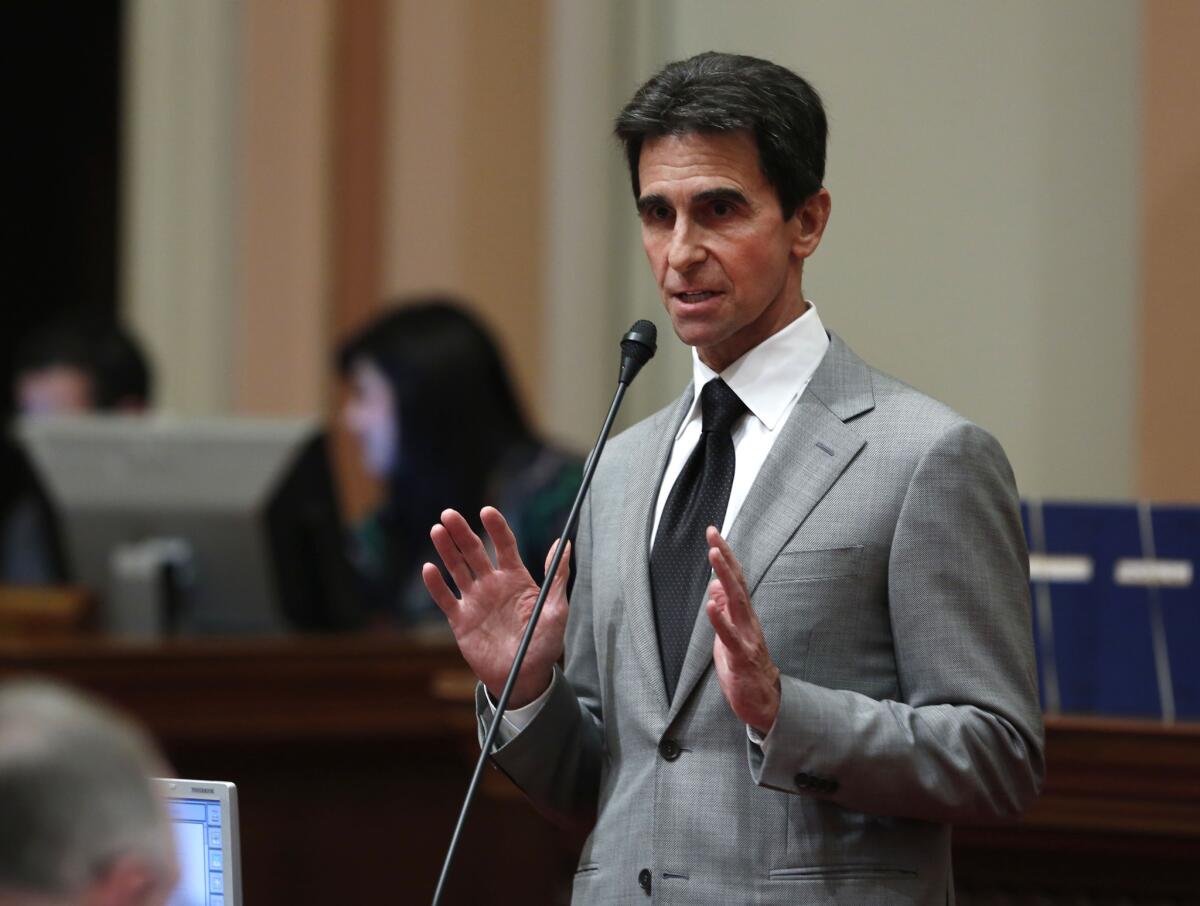Governor’s finance office opposes bill raising minimum wage in California

State Sen. Mark Leno, D-San Francisco, wants to raise the mimumum wage in California.
- Share via
Reporting from Sacramento — Citing significant new costs to the state and a negative effect on businesses, Gov. Jerry Brown’s finance department is opposing a bill that would raise California’s $9 minimum wage to $11 an hour on Jan. 1 and boost it again to $13 a year later.
The finance office said the proposal would increase costs to state agencies by $393 million this year, nearly $1 billion next year and $3.4 billion the year after, with about half coming from the state general fund.
“The Department of Finance is opposed to this bill because it results in significant, unbudgeted costs to the General Fund,” said a report issued for a legislative hearing held Wednesday. “Further, Finance notes the net impact of an increased minimum wage on California’s economy and state budget is likely to be negative.”
The official position could signal the likelihood of a veto if the legislation is approved. In 2013, Brown signed a law that will raise the $9 minimum wage to $10 per hour on Jan. 1.
“While the governor has not taken a position on this bill, and we generally do not comment on pending legislation, Department of Finance analyses — and budgetary impacts — are certainly among the many factors considered when legislation is reviewed,” said Gareth Lacy, a spokesman for the governor.
State Sen. Mark Leno (D-San Francisco), author of the proposal, said he would make the case to the governor that the larger minimum wage hike would generate greater sales and income tax revenue, as well as spending in the economy to match or exceed any additional costs to the state.
He called the Department of Finance report flawed for not including benefits, which he said have been verified by the California Research Bureau, an independent agency that studies policy issues for the Legislature and the administration.
“Our bottom line is it should not be legal to pay a sub-poverty wage in California,” Leno said Friday.
The report was welcomed by Senate Minority Leader Bob Huff (R-San Dimas), who shared concerns about raising the minimum wage.
“We have to find a way to help create jobs to lift our lowest income families out of poverty and expand the middle class,” Huff said. “The Governor’s Department of Finance correctly points out yet another increase in minimum wage would lead to slower personal income growth for low income families.”
The increase from $10 per hour to $11 per hour represents a 10% increase in costs to businesses that employ workers at minimum wage, while the boost to $13 will be a 30% increase, the Finance Department report said.
“For the economy, losses from higher production costs to businesses would be partially offset by the consumption boost from wealthier minimum wage workers, but would overall lead to slower employment growth,” the report said.
More to Read
Sign up for Essential California
The most important California stories and recommendations in your inbox every morning.
You may occasionally receive promotional content from the Los Angeles Times.











